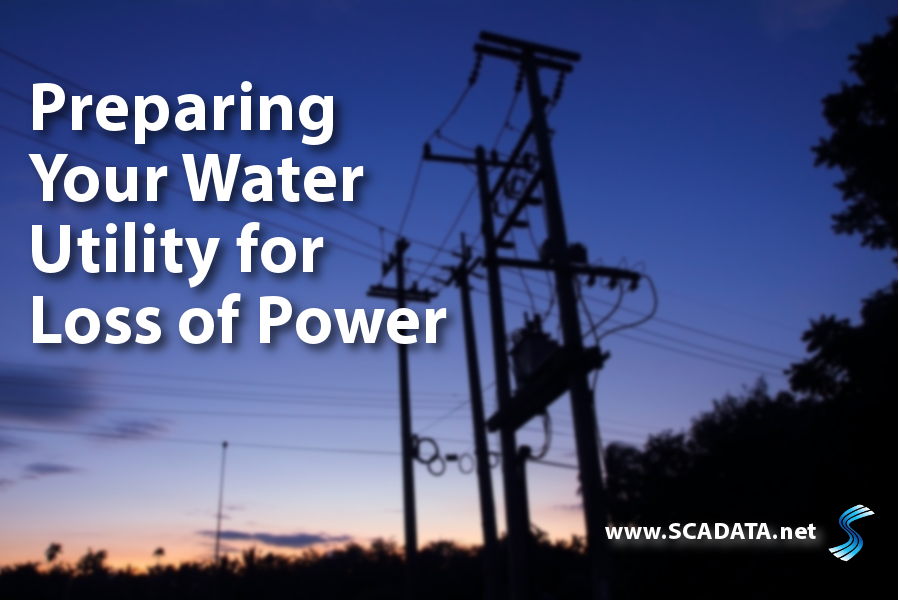In the wake of the recent hurricanes in the southern parts of the United States, we are again reminded of the important roles played by our utilities. Our water utilities ensure that we have access to safe drinking water and appropriately process our wastewater. Electric utilities provide power to residents, businesses, and other utilities. Without these vital services, it would be difficult to accomplish even the most basic of tasks.
These utilities are often interconnected. In order for water utilities to function properly, they need electricity to power the pumps and machinery that power their services. They provide water for local businesses, restaurants, and emergency services, such as fire departments and hospitals.
But, despite our best efforts, there may be times that you need to prepare your utility to be without power. As the recent hurricanes in Houston and Florida have illustrated, events are sometimes out of our control. However, proper preparation can lessen the burden on your utility if faced with the loss of electricity.
Here are some ways you can prepare you water utility for a power loss:
- Prepare a back-up power source: Having a backup power source can be crucial if your utility loses power. Make sure that you research your power needs and have an appropriate source prepared before disaster strikes. Determine how large your backup power source will need to be and have the necessary fuel on hand. Perform regular checks to ensure it will work when you need it the most. Find out more about generators from the EPA.
- Document your procedures and train your staff: As with any disaster, it is important that you have documented procedures in place for a power loss. Don�t expect that your staff will know what to do or where to find these procedures. Perform regular drills to ensure your staff is knowledgeable and prepared. Check out our tips for an emergency response plan.
- Perform a vulnerability assessment: Knowing your vulnerabilities is good information to have for everyday business, but it can be especially important in a power outage. If you know where problems are likely to occur, it will be easier to identify where to focus your efforts when you don�t have the luxury of time.
- Consider implementing your own power supply: The EPA recommends that utilities implement their own power-making solutions. This could involve the use of wind energy, solar power, backup batteries, or any other solution that works well for your utility.
- Prepare a communication strategy: In the event of service interruptions, you will need to be able to communicate with the appropriate people. You will need to notify customers of interruptions and appropriate measures to take until service is up and running again. You will also want to inform local authorities and providers of your power loss so that they take efforts to restore power to your utility as soon as possible.
- Educate your local residents: Provide consistent information to your customers before a power outage occurs. Inform them of how they can access safe water. Tell residents what they can expect and assure them that you will address the problem as quickly and efficiently as possible. If necessary, educate residents on how to boil water to avoid contamination. Developing a positive relationship with your customers will go a long way during a crisis.
Preparation is very important. Make sure your utility isn�t left in the dark.




